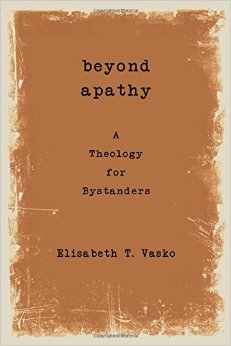Bernard Prusak recently reviewed Leaving and Coming Home: New Wineskins for Catholic Sexual Ethics. While having the book reviewed is itself an honor and while Prusak hailed the book as “courageous” for addressing sexual ethics, he concluded that overall it was a failure (my word, not his) of scholarship and in overcoming the liberal-conservative bifurcation of Catholic moral theology.
Prusak stated that the book was insufficiently critical, historically inattentive, and mostly irrelevant to the needs of the Catholic Church. He noted only one essay was critical of Humanae Vitae, two essays were in agreement with Church teachings, and the rest dealt ineffectively with such “college ethics class” topics like cohabitation, dating, abuse, and pornography. Driving Prusak’s review seems to be the idea that “it is difficult to imagine, without a change in the Vatican’s teaching, ‘effectively moving beyond the impasse’ occasioned by Humanae Vitae.”
As a contributor to the volume, the review stung. As a scholar though, the review indicated why the categories of liberal and conservative function more like biases than frameworks for intellectual inquiry. Bernard Lonergan, the Canadian Jesuit who is best known for his work on epistemology and theological method, said that bias is “a block or distortion of intellectual development”. The liberal and conservative frameworks are biases in that they fail to grasp the reality of the situation. In other words, the perspectives make us inattentive.
Take for example, the recent article in the National Catholic Reporter, “The Hidden Exodus”. The article summarizes the portion of the Pew Research Center’s Forum on Religion & Public Life study that focuses on people who left the Catholic Church and joined Protestant churches. The reasons why people make the switch are complex. They do include some of the favorite topics of conservative and liberals, but the dominant reasons surround issue of biblical knowledge and meaningful worship. People feel that they are not being taught the faith and that worship is not nourishing it. Whatever one makes of these issues, they do not seem to fit well with either liberals or conservatives critiques of or proposals for the Church.
This inattention to what is occurring seems similar to Prusak’s review of Leaving and Coming Home. The sexual issues facing so many people surround the let downs, difficulties, and exploitations that occur in relationships and the struggle to have good relationships. Donna Frietas’ work on Sex and the Soul indicates that college students are not just involved in hook-up culture but are pretty unhappy with it. “It is a culture of pretend and coercion,” she explains, where people assume “everyone” is having sex, that they should be hooking up like “everyone”, and thus by hook and by crook are exploited by the few who benefit from and control this culture. This is the reality. It might be true that the authors of Leaving and Coming Home do not understand this well or do not indicate appropriate practices to navigate out of this oppressive culture, but surely Prusak’s idea that the key issue in Catholic sexual ethics is opposition to the Vatican’s ban on birth control is equally inadequate and could easily play into hookup culture. The conservative opposition to birth control or John Paul II’s theology of the body do not fare any better as both focus on the choices of individuals and neglect the coercion and deception that is at play.
These categories of liberal and conservative are so toxic that we need to remove them from our thinking and theological discourse. They keep us from properly attending to the data at hand. The result is tired insights whose correctness is determined by whether they agree with the insights that went before them. Understanding fails. Judgment is compromised. I am becoming increasingly convinced that the first step in moving beyond this quagmire is naming these perspectives and refusing to rely on them. Once these categories are gone, we can no longer be intellectually lazy, relying on foregone conclusions. We will then be forced to look at what is happening. Only then can we will be forced to be attentive, intelligent, reasonable and responsible.




Trackbacks/Pingbacks